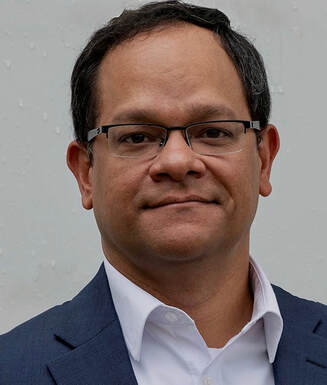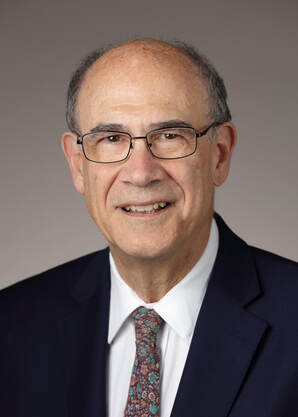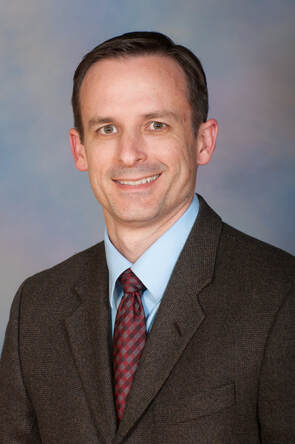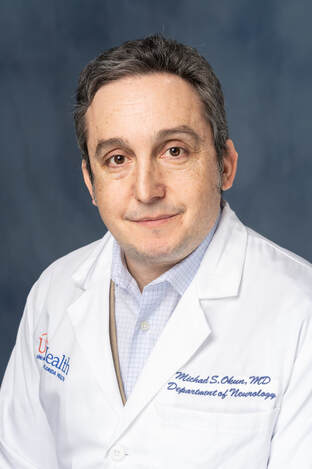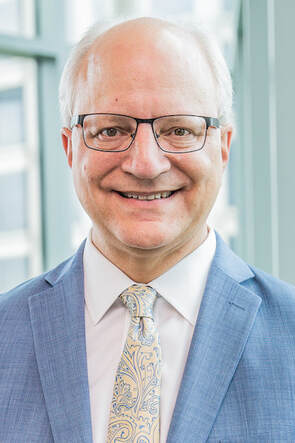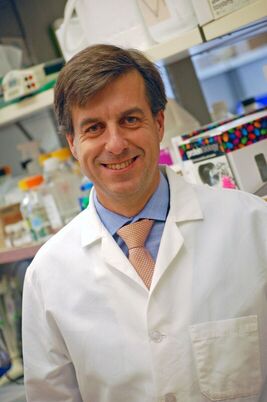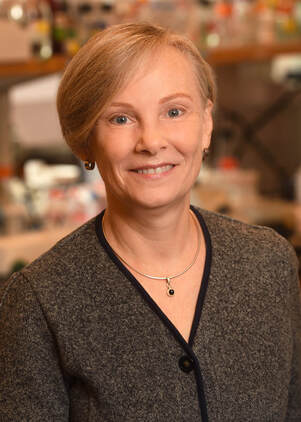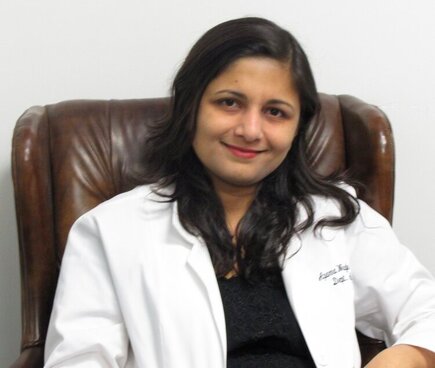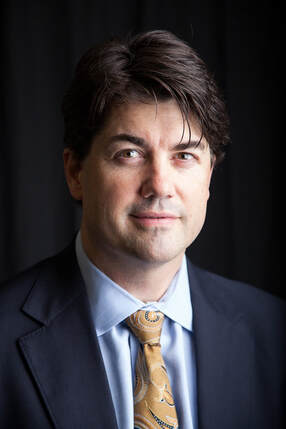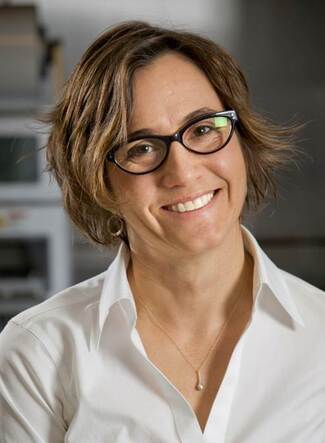|
Dr. Edgardo (Edgar) Rodríguez-Lebrón has 20 years of experience in the gene therapy space with a focus on diseases of the nervous system. He has engineered and developed gene-based therapies to prevent or reverse neurodegenerative processes caused by the accumulation of toxic mutant proteins. He is currently Scientific Advisor to Tyler's Hope, Chief Science Officer of Andante Biologics and a co-founder of early-stage biotech companies developing molecular therapies for CNS diseases. He holds an Adjunct Faculty appointment at the University of Florida where he trained as a graduate student. Go Gators!
Dr. Hallett is the Chief of the Human Motor Control Section, National Institute of Neurological Disorders and Stroke, National Institutes of Health, Bethesda, Maryland. He trained at Harvard Medical School, NIH, Massachusetts General Hospital and the Institute of Psychiatry in London. From 1976 to 1984, Dr. Hallett was the Chief of the Clinical Neurophysiology Laboratory at the Brigham and Women's Hospital and rose to Associate Professor of Neurology at Harvard Medical School. From 1984, he has been at the National Institute of Neurological Disorders and Stroke where he also served as Clinical Director of NINDS until July 2000. He is past President of the American Association of Electrodiagnostic Medicine and the International Parkinson and Movement Disorder Society, past Vice-President of the American Academy of Neurology, and current Past-President of the International Federation of Clinical Neurophysiology and President of the Functional Neurological Disorder Society. His work mainly deals with principles of motor control and the pathophysiology of movement disorders. He currently serves on the DMRF Medical Advisory Board and is the Chair of the Medical Advisory Board of the BEBRF. He is a member of the Dystonia Research Group and serves on the Steering Committee of the Dystonia Coalition.
David Vaillancourt, PhD, is currently a Professor and Chair in the Department of Applied Physiology and Kinesiology. He has secondary appointments in Biomedical Engineering, and Neurology at the University of Florida. Vaillancourt’s research focuses on how the brain regulates movement with a specific focus on voluntary and involuntary motor disorders. His research program uses advanced neuroimaging techniques to study the functional and structural changes in the brain of people with movement disorders that span Parkinson’s disease, tremor, dystonia, and ataxia. He is also part of the 1Florida ADRC focused on Alzheimer’s Disease, where he directs the biomarker core. He has conducted studies investigating interventions including rehabilitative, surgical, and pharmacological interventions, and published this work in journals that include Brain, Annals of Neurology, Journal of Neuroscience, Science Translational Medicine, JAMA Neurology, Neurology, Human Brain Mapping, Neuroimage, Cerebral Cortex, and Neurobiology of Aging. He has been continuously funded by NIH since 1999, and now directs several grants from NIH. Active work in his lab includes progression studies focused on changes in the brain for Parkinson’s disease and Parkinsonism, studies of tremor and brain connectivity, and pharmacological and neuroimaging studies for dystonia in mouse and human. He has served as Chair of the NIH Study Section Motor Function Speech and Rehabilitation and reviews grants for the Michael J. Fox Foundation and National Parkinson Foundation. He has been primary mentor on both F32 and K-series awards from NIH. At UF, he created the course entitled “Movement Disorders” which is now the foundation course for a T32 training grant from the NIH for training doctoral students in movement disorders.
Michael S. Okun was awarded a B.A. in History from Florida State University and completed his first year of medical school at the Florida State Program in Medical Sciences (PIMS). He was a recipient of the Florida Undergraduate Scholars Fund (1989) which was the precursor to the current Florida Bright Futures award. He also received a Robert C. Byrd Honors Scholarship from Florida State University. He obtained his M.D. with honors from the University of Florida as part of the cooperative PIMS program. He completed residency in neurology and was the chief resident at the University of Florida. He was fellowship trained by Mahlon DeLong, Jerrold Vitek and Ray Watts at Emory University in Atlanta GA before moving to found the movement disorders program at the University of Florida. He is currently Chair of Neurology, Professor and Executive Director of the Norman Fixel Institute for Neurological Diseases at the University of Florida Health College of Medicine. The UF institute he co-founded with Kelly D. Foote, M.D. is unique in that it is comprised of 123 interdisciplinary faculty members from diverse areas of campus (35 departments), all of whom are dedicated to care, outreach, education and research. Dr. Okun was instrumental in the construction of a one-stop patient-centered clinical-research experience for national and international patients seeking care at the University of Florida. This change in care and research delivery has since been named the service and science hub model of care. The UF based center draws national and international visitors interested in deploying this innovative clinical-research model. Dr. Okun has served as the National Medical Director for the Parkinson’s Foundation since 2006 and as the Medical Advisor for Tyler’s Hope for a Dystonia Cure since its inception. He has been supported by grants from the National Institutes of Health, the Smallwood Foundation, the Tourette Association of America, the Parkinson Alliance, the Bachmann-Strauss Foundation, the Parkinson’s Foundation, and the Michael J. Fox Foundation. Dr. Okun has an active research career exploring non-motor basal ganglia brain features and currently holds two NIH R01 grants and several foundation grants exploring various aspects of deep brain stimulation and neuromodulation. Dr. Okun has been an integral part of some of the pioneering studies exploring the cognitive, behavioral, and mood effects of brain stimulation and since 2005 his laboratory has been working to uncover the electrical brain signals associated with human tic. He has also partnered with Dr. Ayse Gunduz and Kelly Foote to develop a first generation of closed loop adaptive deep brain stimulation approaches. Dr. Okun was the founding PI for the International Database and Public Registry for Tourette Deep Brain Stimulation. He and his group have contributed data to support the FDA approval of several device related approaches now used to treat human disease. Dr. Okun holds the Adelaide Lackner Professorship in Neurology and has published 406 peer-reviewed articles, 80 review articles and 10 books. He is a poet (Lessons From the Bedside, 1995) and his book, Parkinson's Treatment: 10 Secrets to a Happier Life was translated into over 20 languages. His most recent book, Ending Parkinson’s Disease is due to be released in March 2020. Dr. Okun was recognized in a 2015 White House ceremony by the Obama administration as a Champion of Change for Parkinson’s Disease.
William T. Dauer, M.D., a neurologist acclaimed for his research into dystonia and Parkinson’s disease, joined UT Southwestern Medical Center in July 2019 as the inaugural Director of the Peter O’Donnell Jr. Brain Institute.
Most recently, Dr. Dauer was Director of the Movement Disorders Group and the Morris K. Udall Center of Excellence for Parkinson’s Disease Research at the University of Michigan. For nearly two decades, Dr. Dauer’s groundbreaking research has focused on the molecular basis of dystonia and the mechanisms of neurodegeneration in Parkinson’s disease. His findings have elucidated the critical role of the torsinA protein in the progression of dystonia, which is marked by disabling, involuntary movements. The studies of his Udall Center team dissecting the neurobiologic basis of falls in Parkinson’s are being used to pioneer a therapy for this currently untreatable symptom. Dr. Dauer is an elected member of the American Society for Clinical Investigation, and has been honored with the Dystonia Medical Research Foundation’s Fahn Award and Columbia University’s Harold and Golden Lamport Award for excellence in clinical science research. He attended medical school at Washington University in St. Louis. After postdoctoral work at Massachusetts General Hospital and a medical internship at Beth Israel Hospital in Boston, he completed his residency in neurology and fellowship in Parkinson’s disease and related movement disorders at Columbia University in New York, where he established a laboratory in 2001. In 2009, he joined the faculty of the University of Michigan Medical School. |
|
Dr. Gonzalez-Alegre is an Associate Professor of Neurology at the University of Pennsylvania, where he is Co-Director of the Parkinson’s Disease & Movement Disorders Center and Director of the Neurogenetics Program. He is also Director for Clinical Programs at the Raymond G. Perelman Center for Cellular & Molecular Therapeutics at The Children’s Hospital of Philadelphia. In addition to providing clinical care for patients with inherited movement disorders, he has made significant research contributions in the area of dystonia and gene therapy development for movement disorders, working both at the bench and the clinic. A specific objective of research in his my laboratory is the identification of the neurobiological bases of dystonia, using that information to devise novel therapeutic strategies. He uses cellular and animal models of inherited forms of dystonia, mainly DYT1, to achieve those goals. For these research efforts, he received the 2003 S. Weir Mitchell Award and the 2012 Jon Stolk Award in Movement Disorders from the American Academy of Neurology, the 2004 Junior Award for Excellence in Basic Research from the Movement Disorders Society and the 2012 Stanley Fahn Award of the Dystonia Medical Research Foundation.
Ellen J. Hess is a Professor in the Departments of Pharmacology and Neurology at Emory University School of Medicine. She received her B.A. in Psychobiology from Wellesley College and Ph.D. in Neuroscience from University of California at San Diego with postdoctoral training at The Scripps Research Institute. Before joining the faculty at Emory University in 2008, she held academic appointments at Johns Hopkins University School of Medicine and Pennsylvania State University College of Medicine. Dr. Hess’ laboratory works on understanding the pathophysiology of dystonia by understanding the specific dysfunctional neuronal signals. Additionally, Dr. Hess has created and uses many different animal models of dystonia. Her laboratory uses these models in an effot to discover and develop new treatments for dystonia. This work forms the basis of the Antidystonia Drug Discovery Program, which serves as a resource for preclinical antidystonia drug testing for the academic scientific community and the pharmaceutical industry. Dr. Hess has published over 100 scientific papers, chaired numerous scientific review panels and is invited to speak on her work throughout the world.
Dr. Aparna Wagle Shukla is an Associate Professor in the Department of Neurology at the University of Florida. Her clinical practice involves a large population of patients diagnosed with focal and generalized dystonia. Over the last decade, she has seen several hundred patients with dystonia who present to her clinic from all over the state, southern Georgia, parts of Alabama, and South Carolina as the University of Florida is a premier institute for dystonia care. While Dr. Wagle Shukla provides clinical care for patients, she is also passionately interested in pursuing dystonia research. She has been actively directing Tyler's Hope Foundation activities for the past many years. The main goal of Tylers' Hope Foundation is to bring together world class researchers interested in dystonia and find a cure for the disease ultimately.
Dr. Wagle Shukla's research primarily focuses on elucidating the brain circuitry function that gives rise to dystonia symptoms. Dystonia is a network disorder involving many brain regions. It is crucial to understand the circuitry connecting these brain regions before novel treatments could be designed successfully. Dr. Wagle Shukla aims to apply insights gained from physiological studies to develop innovative approaches for treating dystonia. Her research mainly involves the use of noninvasive repetitive transcranial magnetic stimulation, a brain stimulation method that is approved by the FDA for treatment of depression, but there is increasing recognition for its application in treating neurological disorders. Also, her research focuses on clinical trials and therapeutics involving pharmacological therapies, botulinum toxin injections, and deep brain stimulation surgery. She is also working on developing novel rehabilitation based strategies for treating dystonia. Her research has received funding from Dystonia Coalition, Dystonia Medical Research Foundation, Blepharospasm Research Foundation, and the National Institute of Health. Her research has been published in several peer-reviewed prestigious scientific journals. Together with Tyler's Hope Foundation support and dystonia community, she aims to continue her clinical activities and pursue research goals. Dr. Foote is one of few neurosurgeons with fellowship training in both movement disorders neurology (under Mahlon Delong and Jerrold Vitek at Emory University) and deep brain stimulation (under Alim-Louis Benabid in Grenoble, France). He is a materials science engineer (U of Utah) and a
specialist in stereotactic and functional neurosurgery (U of Florida). His research in the fields of deepbrain stimulation and stereotactic radiosurgery has produced over 200 peer-reviewed publications. Dr. Foote’s current research focus is on optimization of DBS outcomes and novel applications of DBS technology. He and his team at the University of Florida are heavily invested in closed-loop neuromodulation and the neurophysiological characterization of functional brain circuitry. His NIHsponsored research has included projects applying and optimizing DBS therapy for the treatment of Parkinson’s disease, essential tremor, severe tremor secondary to multiple sclerosis, obsessivecompulsive disorder, and Tourette syndrome. He has participated in multiple industry sponsored trials of novel DBS hardware as well as a trial of DBS for the treatment of Alzheimer’s dementia. Since he joined the UF neurosurgery faculty in 2002, Dr. Foote has performed over 2000 DBS lead implantation procedures and, perhaps most notably, he and his neurologist partner, Dr. Michael Okun, founded and co-direct the world-renowned Fixel Institute for Neurological Diseases at the University of Florida. Dr. Foote has won multiple teaching awards at the University of Florida and he was the recipient of the International Parkinson’s Community Service Award from the World Parkinson’s Program in 2015. He has served on the Executive Council of the American Society for Stereotactic and Functional Neurosurgery, and on scientific program committees for the Congress of Neurological Surgeons and the International Movement Disorders Society. He was honored for his academic impact with election to the American Academy of Neurological Surgery in 2012. Dr. Calakos is the Lincoln Financial Group Distinguished Professor of Neurology and Neurobiology and Chief of the Movement Disorder division at Duke University Medical Center. Dr. Calakos cares for patients with Movement Disorders and leads a laboratory research program that studies the normal mechanisms of learning through synaptic plasticity and how these processes are disrupted in disease. Her team focuses on plasticity processes within the basal ganglia circuitry to understand its role in normal adaptive behavior, such as habit formation, and disorders such as compulsive behavior, dystonia and Tourette’s syndrome.
Dr. Calakos received her bachelor’s degree from the University of California at Berkeley, her MD and PhD degrees from Stanford University, and residency training in Neurology at the University of California at San Francisco. In addition to critical support from private foundations, her work is supported by the NIH. Her laboratory has been recognized nationally and internationally for its contributions. Honors and awards include the McKnight Neurosciences Memory and Cognitive Disorders award, Klingenstein Fellowship in the Neurosciences, Harrington Discovery Institute Scholar-Innovator award and American Society of Clinical Investigators member. Dr. Calakos has served on the Board of Directors for the American Neurological Association, NIH study sections concerning synaptic function and mechanisms of neuropsychiatric disease, and scientific advisory boards for movement disorder foundations. |
Location:
|

